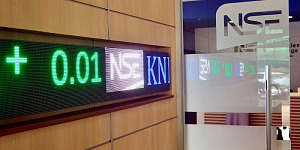The Capital Markets Authority (CMA) is developing margin trading regulations as part of interventions to revitalise shares trading on the Nairobi Securities Exchange (NSE).
Margin trading is a method of investing in shares using funds borrowed from a lender, mostly a stock brokerage or investment bank.
According to the CMA, the NSE has continued to witness a prolonged period of low volatility despite low stock valuations providing the opportunity for investors to purchase stocks at discounted prices, including through margin trading.
“The low volatility in the market provides opportunities for investors to engage in day trading and margin trading, which in turn, will boost overall market activity and enhance liquidity. CMA is in the process of developing margin trading regulations,” said the CMA.
Day trading refers to buying and selling stocks on the same day to gain from small price movements.
In a typical margin trade, a trader will borrow money from a brokerage firm by first depositing funds as collateral for the loan. The trader is then required to make interest payments on the borrowed funds.
The loan increases the buying power of investors, allowing them to buy a larger quantity of shares/securities with the securities purchased also serving as additional collateral for the loan obtained/margin loan.
Some markets allow investors to borrow the equivalent of their cash deposit, effectively doubling their buying power in the stock market.
Traders seeking margin loans are usually required to open margin accounts detailing the terms of the broker-lender arrangement.
While margin trading allows investors to increase their share purchases, investors are usually at risk of losing more money than they have deposited into the margin account, which requires them to provide additional funds or incur a forced sale of the securities if their portfolio declines below a minimum set value.
Margin trading amplifies the potential for gains or losses for an investor with the losses representing risks to investors.
Stock brokers who run the margin accounts will require an investor to increase their collateral in the eventuality of a loss in an event known as a margin call, which often requires investors to sell their shares to raise the necessary funds, sometimes at unfavourable prices.
Margin trading is expected to complement day trading on the NSE which began in December 2021 and allows investors to buy and sell securities within the same trading day.
Last year, the CMA said it would occasionally suspend part of day trading fees in an attempt to spur activity in the market segment.
Most investors on the NSE use their capital to invest in the short to long term, with some also pledging their portfolio as collateral for bank loans.



















































